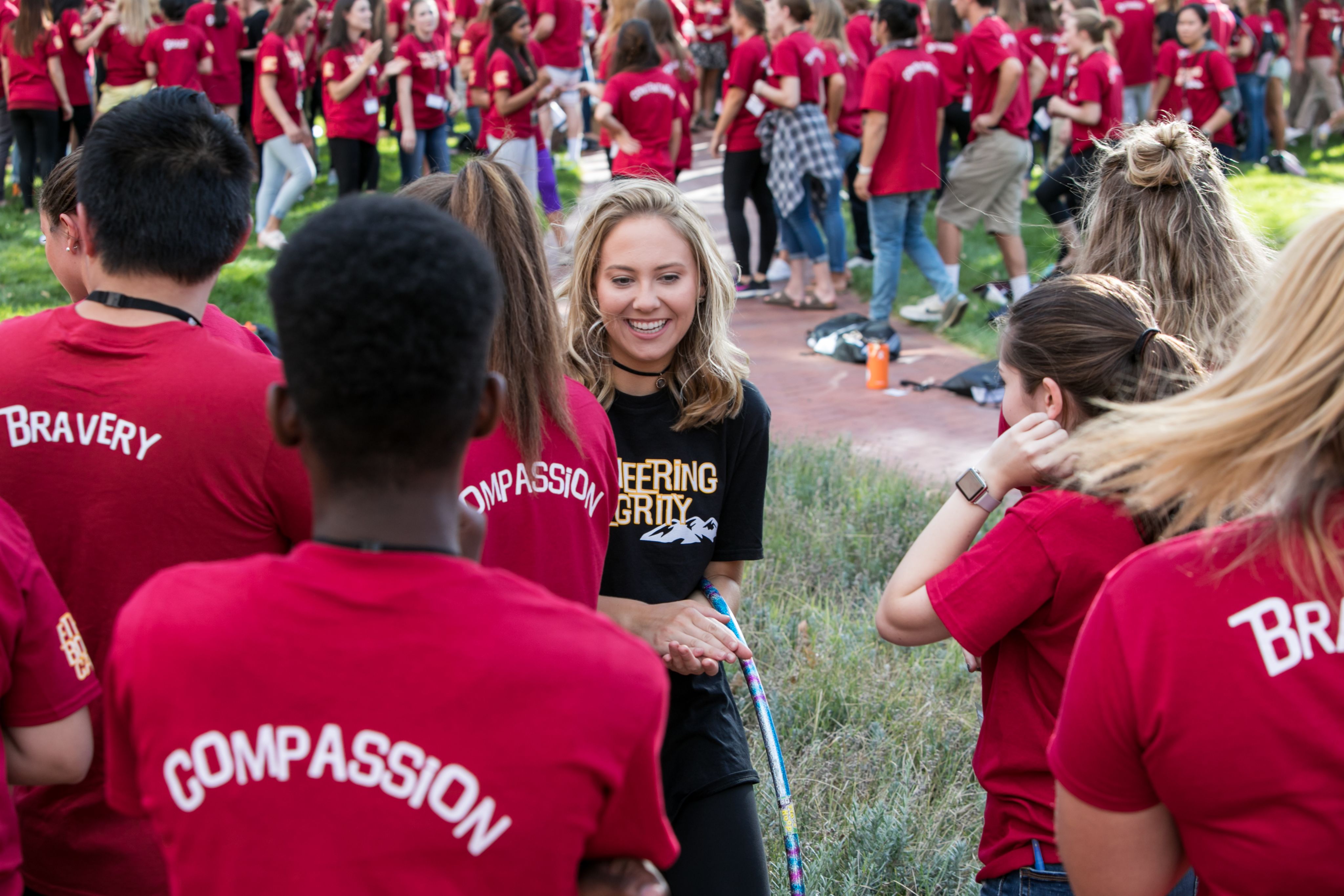Where Profit Meets Principle
The Business Ethics and Legal Studies minor has surged in popularity, setting business-minded students on a path to ‘not only do well but do good.’

“Business can be a force for good,” says Bruce Klaw, chair of the Department of Business Ethics and Legal Studies in the Daniels College of Business. “But in order for that to happen, students have to be aware that there are opportunities to not only do well but do good at the same time.”
Since the 2000s, the Business Ethics and Legal Studies (BELS) minor has equipped students across DU with tools to integrate world-class business acumen with ethical decision-making in support of the public good. Over the past two years, the program’s enrollment has jumped by 75%.
“It’s been a really solid upward trajectory,” notes Klaw. “I think that speaks to the expansion of available courses and the dedication of the faculty.” And with many students wanting more than just a degree from their college experience, the BELS program equips students to tackle real-life legal and ethical challenges they might face in their careers. Klaw says he sees huge potential for students to move the needle and make a positive impact in the world at large.
Curriculum tailored to the future
BELS offers 20 classes, from courses in philosophy and ethics, contracts and negotiations, and employment law to forward-thinking courses on ethics and governance of new technologies, climate change and corporate risk management, and international business law. The courses and the cases that students study are tailored to the most pressing issues facing businesses, governments and communities across the country.
Students learn not only about the theoretical underpinnings of ethics and legality but also how to apply them to contemporary issues, across a variety of industries. “Students are all going to have to grapple with what new technologies like artificial intelligence are going to mean for their future and for the future of our society,” Klaw says. “These are essential core questions that implicate things like our democracy and what kind of future we want to have.”
Beyond the classroom, students put their learning to work in ethics case competitions. These events challenge them to tackle complex ethical dilemmas— from access to industry secrets and conflicts of interest to privacy, discrimination and risk management across a range of fields. Participants often describe these experiences as transformative, deepening their understanding of how ethical principles can guide practical solutions in business scenarios.
A legacy rooted in purpose
The emphasis on ethical practices at the Daniels College of Business is part of the legacy of the college’s namesake, Bill Daniels, a pioneer in the cable television industry with a lifelong commitment to ethical business leadership. In 1989, Daniels became one of the first programs in the country to include ethics coursework for all students. The BELS department has expanded on that tradition across multiple majors. Nearly a third of BELS students come from outside the Daniels College of Business.
As Klaw explains, “We show students how things like legal acumen, risk management, sustainability and public policy savvy can all lead to better decisions and outcomes not only for their businesses but for society at large.”
For many students, courses leave a lasting impression. “I never would have even considered law as a possible minor or future career, but through taking [Foundations of Business Law], I realized how much I enjoyed it. And the BELS minor does a great job of having a range of topics to choose,” says Aubrey Brashear, a fourth-year hospitality management student. “It’s made me more aware of my values and wanting to be an ethical employee and perhaps employer in my future career.”
Brashear’s favorite classes were White-Collar and Corporate Crime and the Ethics Boot Camp. After graduation, she is looking to use the practical takeaways from the program.
“A lot of legal situations and lawsuits could have been avoided altogether if an employer or colleague was being ethical and respectful,” she says. She also notes that the courses helped her build confidence and public speaking skills. Establishing a network of peers in different fields has instilled in her the importance of acting, working and leading ethically.
The skills, scenarios and ethical principles that make up the BELS minor are made possible by industry experts, community mentors and alumni who are willing to bring their experiences into the classroom, Klaw says. “We make sure that our alumni will be proud of who we continue to graduate, and we certainly welcome them to come back and share what they have learned in the business world with our students.”